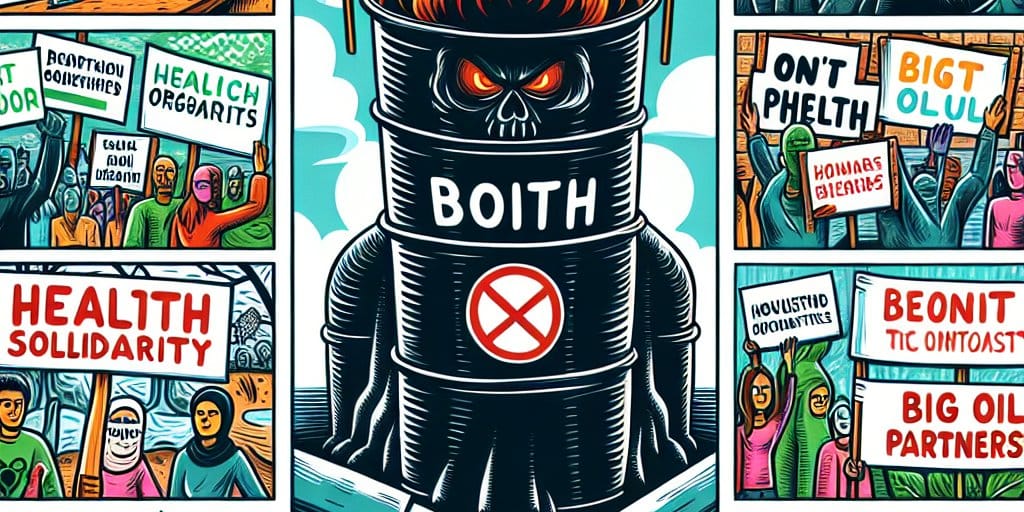Health Bodies Vow to Boycott Agencies Working with Big Oil in 2025
In an unprecedented move, numerous health organizations have pledged to sever ties with marketing and public relations agencies that maintain relationships with the fossil fuel industry by 2025. This decision highlights a growing recognition of the direct impact that environmental factors, particularly those influenced by Big Oil, have on public health.
The Impetus Behind the Decision
The link between environmental degradation and public health has been well-documented, with increasing evidence pointing to the adverse effects of pollution and climate change on human well-being. Health bodies are now taking a stand, choosing to dissociate from companies that support the operations of Big Oil, a major contributor to global warming and environmental pollution.
As detailed in a recent report from the World Health Organization, the health implications of climate change are severe, affecting everything from air quality to the spread of infectious diseases. The report underscores the urgent need for action across all sectors, including the corporate affiliations of health-focused organizations.
Strategic Implications for Health Organizations
In distancing themselves from agencies that work with Big Oil, health organizations are not only taking a moral stance but are also strategically aligning their operations with their core missions—to foster and promote public health. This boycott is expected to encourage agencies to reconsider their client portfolios, potentially leading to a broader corporate shift away from the fossil fuel industry.
"Our commitment to public health extends beyond the clinic and into the very environment we live in," stated a spokesperson from a leading health organization.
Further, this shift mirrors a broader trend of divestment from fossil fuels in other sectors, including education and finance, where stakeholders are increasingly recognizing the financial and ethical risks associated with the industry. The divestment movement has gained substantial traction, signifying a potent shift in corporate responsibility and investment strategies.
Potential Challenges and Criticisms
The decision to boycott agencies linked with Big Oil is not without its challenges. Critics argue that this approach could lead to a polarization where companies are forced to choose between health and energy sectors, potentially undermining broader collaborative efforts needed to tackle global issues like climate change. Concerns about the practicality and impact of such boycotts are also prevalent, with some suggesting that they might lead to increased division rather than cooperative progress.
Moreover, the effectiveness of such boycotts in driving real change within the fossil fuel industry remains to be seen. It's one thing to change partners; it's another to change industry practices. However, supporters believe that any action pushing towards greater environmental responsibility is a step in the right direction.
Looking Ahead: The Future of Health Advocacy
The boycott against agencies working with Big Oil by health organizations is set to commence in 2025, giving agencies ample time to reevaluate and adjust their client lists. This future-looking approach provides a clear message about the values and priorities of the health sector. It’s a bold move that sets a precedent for other industries to follow, potentially leading to a more sustainable and health-conscious corporate landscape.
The success of this initiative could pave the way for similar actions in other sectors, creating a domino effect that amplifies the impact of the original boycott. For more on how similar strategies have been employed in other sectors, read about sustainable practices across industries.
FAQs
Why are health organizations boycotting agencies that work with Big Oil?
Health organizations are boycotting these agencies to distance themselves from the negative environmental impact associated with the fossil fuel industry, which is directly linked to public health issues such as pollution and climate change.
What impact could this boycott have on the marketing and PR industries?
This boycott could prompt agencies to reassess their client lists and potentially lead to a shift in the industries' client base, favoring companies with better environmental track records.
Could this action create a precedent for other sectors?
Yes, the action taken by health organizations could set a precedent for other industries, encouraging more sectors to reconsider their partnerships and align more closely with environmental and health objectives.

